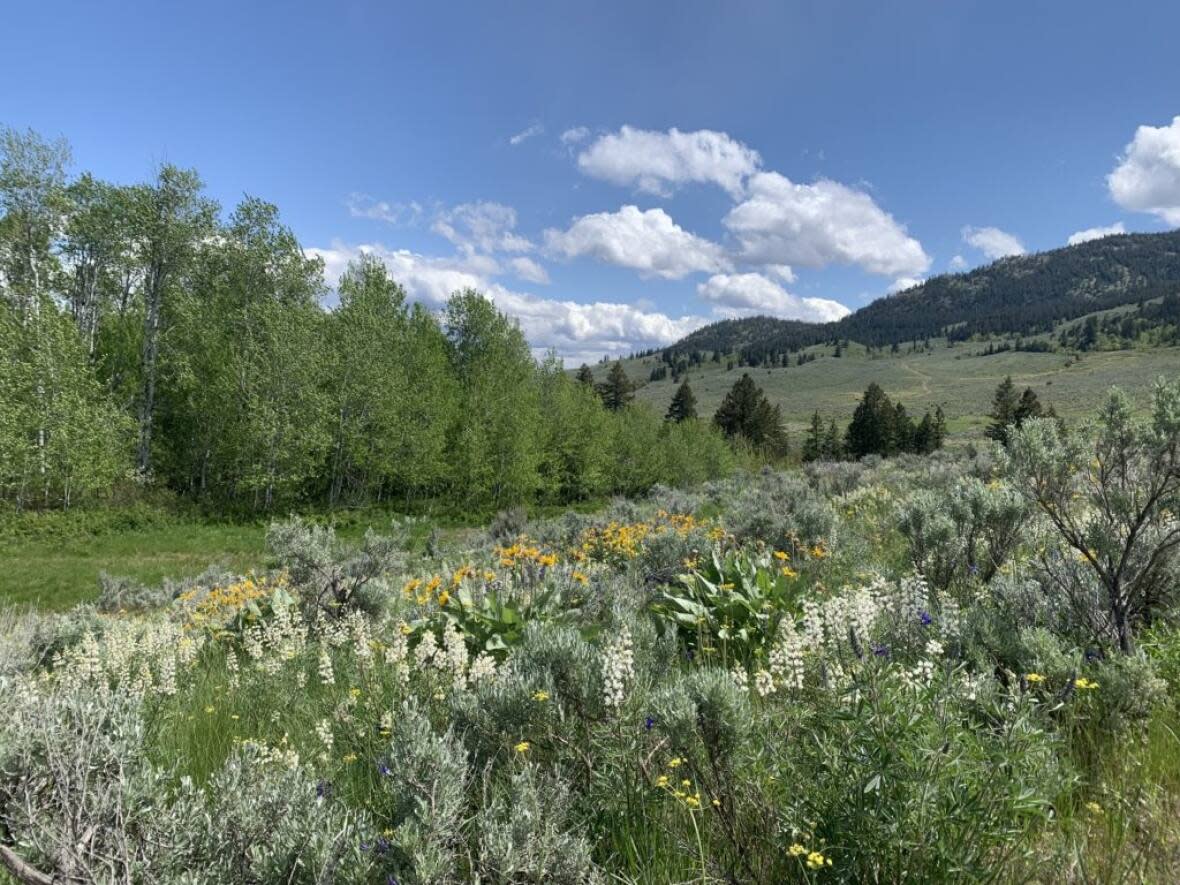B.C. non-profit purchases 65 hectares of private land in the South Okanagan to help conserve it

A non-profit focused on land conservation has recently purchased one of the last remaining private properties in B.C.'s South Okanagan to protect it from future threats, including real estate development.
On Wednesday, the Vancouver-based Nature Trust of B.C. announced that it had successfully acquired Park Rill Creek Infill West, a 65-hectare land valued at more than $2 million.
It has been added to the adjacent White Lake Basin Biodiversity Ranch, more than 8,220 hectares of land being protected by the Nature Trust.
The property, located west of the Similkameen River between Skaha and Vaseux Lakes, consists of 13 parcels of private land that the non-profit has bought consecutively since 1996.
The Nature Trust of B.C. says it purchased the property with financial support from Environment and Climate Change Canada and $200,000 in crowdsourced funding.
About five per cent of B.C. is comprised of private land, much of which is located in ecologically rich areas. The rest — 94 per cent — is provincial Crown land, and one per cent is federal Crown land.
Home to at-risk species
The White Lake Basin Biodiversity Ranch, including the newly acquired property, consists of diverse and sensitive ecosystems that support more than 30 per cent of B.C.'s at-risk species, according to Nature Trust.
These include birds such as Lewis's woodpeckers, barn swallows, flammulated owls and grasshopper sparrows.
CEO Jasper Lament says the conservation of natural land is British Columbians' "biggest ally" in the global battle against climate change.
"Large-scale nature conservation is a strong tool to ensure biodiversity can flourish undisturbed while also helping to mitigate against climate change," Lament said in a press release.
Nicholas Burdock, conservation land manager, says the organization will work with First Nations, federal and provincial governments to figure out ways to maintain and improve the wildlife habitat in the ranch.
"We can make adjustments in order to make sure that those threats [to species in the ranch] aren't impacting what we're trying to achieve through our conservation objectives," Burdock said on CBC's Daybreak South.
"Typically that means [some] areas will be open for public access by foot only, dogs must be on leash, no camping, no fires," he said.
"Certain spots, depending on how sensitive they are to threats, might be off-limit for public and other uses."
The Nature Trust of B.C. says since its establishment in 1971, it has acquired and cared for more than 700 square kilometres of private lands that contain some of the province's most critical habitats for vulnerable wildlife and plants.


